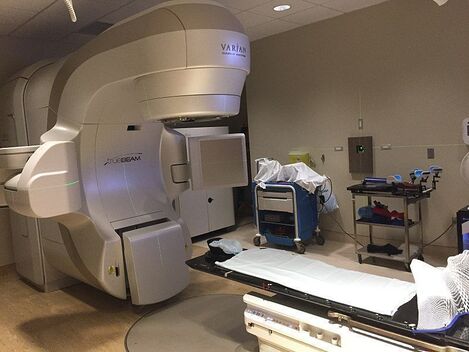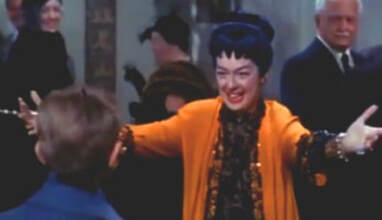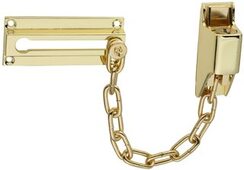all of the selves we Have ever been
 I arrive for my appointment to get measured and marked for the start of 16 sessions of radiation therapy. The busy scheduler apologizes for the crazy schedule as she tries to find a consistent time of day for my appointments, appointments that will span four weeks from start to finish if all goes well. “Do you have far to travel,” she asks me. I am aware that people drive hours each way every day to get their treatments in this world class treatment facility. “I live three miles from here; schedule me at your convenience and the convenience of those who have to travel.” In the treatment changing room, I don a lavender gown and take a seat in the waiting area where I sit with other women in matching lavender gowns. We each wait for our name to be called. Some days, things go smoothly. Other days, things happen like the air conditioner breaking down in a treatment room. The schedule backs up. The staff is so apologetic, kind, and hardworking that no one would consider complaining. Some of the women wait in silence. Others stare into their phones or up at the television screen, a few feel compelled to share their stories; they are containers about to burst. Their trauma needs to be revisited. The re-telling helps to break through the shock and disbelief, and it helps to make it manageable. The only similarity among us is the matching gowns. Each cancer story is different. Each story re-defines bravery: the misdiagnoses, the years of treatment and recovery, crossing the finish line at the ten year mark only to have the cancer return in the bones seven weeks later, women holding down demanding jobs, mothers trying not to frighten their children, expectant women trying to keep their hopes up as they navigate breast cancer and pregnancy at the same time. I sit across from a young woman. I see her bald head and tired eyes, and my heart fills with grief for her. I think of my own daughter about the same age. And I think this woman is someone else’s daughter. And I think that she is too young for this. I want to open some tap in my own body and fill a cup with the good health I have enjoyed. I want to give it to her and say, “Drink.” The women come and go from the waiting room. In quick exchanges they share their fears of losing jobs, and not just their livelihoods, but their precious health insurance. They continue to mask up while the rest of the world breathes freely. COVID will never be over for them. There is a loneliness in the experience of illness that cannot be understood except by a fellow traveler. It does not matter how many people love you. It does not matter how much support you have. There are stops on the road where others can wait, but they cannot go into the dark and frightening spaces they don’t know exist. They can only carry the load and stay with the pain for so long. Family and friends remain optimistic. Often they don’t want to hear about that which is hard. Treatment professionals are quick to diagnose “depression,” when, in fact, it is coping. Others cannot stay awake to the pain and fear for as long as the patient must. And, to be fair, they cannot. That is what makes these moments in the waiting room so precious. Perhaps someone receives a gift on the day the air conditioner breaks down. And yet, with all of this said, it is a cheerful group of women with more to share than their woes. There are grandchildren and great-grandchildren, travel and restaurants, birthdays and anniversaries. We all come here for the hope--the hope offered by treatment, and the hope in each story. In this place we can relax with the truth without judgment or self-consciousness. In this group I am grateful for the health I have, for my strength, for the optimistic outlook for my own disease, and for the people and resources in this remarkable treatment center. I reflect on the beams of light that will penetrate each of us who come to this waiting room. I think of the human genius that harnessed the power of the sun to cure cancer. And I think of The One who said, “Let there be light,” and made order out of the chaos. It is the same One who made man, and seeing that man was lonely, He made the rest of us. We are the cure. We were made for each other. If only we could remember this in both sickness and in health, that would be paradise.
0 Comments
 Running behind schedule one Sunday morning, Aunt Addie grabbed her full length fur coat and put it on over her bra and panties. She slipped on some high heeled shoes and headed for church. Addie made no secret of her attire as the family left the house. No one was surprised. We all knew that Aunt Addie had reached a compromise with nature long before we were born. Nature would not defy her. Neither would we. We also knew that if Aunt Addie got it into her mind to remove the coat during mass, she would not blink an eye or bother to look right or left. She would simply slide the luxurious fur off her shoulders and drape it over the back of the pew. When mass was over, she might put the coat back on or hang it over her arm and walk home. Aunt Addie’s philosophy was: go bold or go home, and if going home, go home boldly. Once on a crowded department store escalator, Aunt Addie broke wind, thunder really, that trailed her for the entire ride down. She never flinched or even lowered an eyelash. She simply enjoyed the ride and stepped off at the bottom like royalty. Had Addie lived to see Donald Trump descend the escalator to launch his presidential campaign, she would have dismissed the performance: “A fart on an escalator? That’s already been done.” And then she would have inhaled deeply on her long cigarette and blown a smoke ring for emphasis. Addie envisioned herself a kind of Auntie Mame, that Manhattan-dwelling, flamboyant, free-spirited aunt with an objectionable lifestyle, and a friend who ran a nudist school. Auntie Mame is famous for saying: “Life’s a banquet, and most poor suckers are starving to death.” Aunt Addie never missed a meal, and, generally, she was doing the cooking. We rode the waves of her moods into countless adventures. Erasmus, Mark Twain, or somebody in between is credited with saying that the clothes make the man. I’m not so sure. It is my observation that women like my Aunt Addie who came from simple immigrant roots were fully formed before they purchased the fur coats and the designer fashions. Addie was smart enough to know that clothes gave her access, got her invited to the banquet, and so she acquired them. But those wardrobe items were simply props that embellished her already big personality and fed her appetite for living. Some of us fret about having nothing to wear to the banquet, or that what we have isn’t good enough. We’re ashamed of the state of our underwear. And so, we don’t attend. Aunt Addie would have had none of that. She would have said, “Grab your coat, Doll, we’re going! Meet me in the Cadillac. It’s not the clothes, Doll; it’s the courage.”  mes When I was a young teenager growing up in the suburbs of Pittsburgh, Pennsylvania, we had a night time ritual in our home. It was called “closing up for the night.” The last one up walked the house checking the stove, turning out lights, tightening the faucet handles, and locking the doors. Of course, it was usually a parent doing these things. After my parents divorced, it fell mostly to my mom, but occasionally to me. One night both mom and I were still awake when it was time to close up for the night. We each started walking about the house checking the stove, the faucets, and the lights. We both arrived at the door to the basement at the same time. I was better positioned, and so I opened the door and looked down the steps. It was dark. I quickly closed the door and slid the chain lock into place. I turned to my mother and said, “Whenever I open that door, I am afraid there will be a stranger standing on the other side.” My mother said that she, too, experienced the same thoughts and feelings whenever she closed up for the night. Many years later, as a social worker, I met a mother who was caregiver to an adult son. The son had been a soldier in Vietnam and had returned from his service with both his body and mind significantly altered. Though it was difficult for her, the mother took the public transportation to visit her son every day. The mother told me her son had been a happy-go-lucky boy. He always had a radio playing and a song in his heart. I asked this mother what it had been like to see her baby boy come home from war in this condition. “You’ve got to stay prayed up,” she said. Fast forward another dozen years. I attended a conference in New York City. Present were Holocaust survivors and individuals who provide services to them. A woman in the audience shared her family story of survival during World War II. When circumstances became too dangerous for Jewish people to remain in their homes, this woman’s father arranged for the family to go into hiding on a farm. One day while the family was hiding, some Nazi soldiers drove onto the farm and spoke with the owners. Fearing that his family had been discovered or soon would be, the father gathered his family together and said, “We must separate.” He sent the family members off in pairs giving each pair a specific address where they could hide. The father said, “This war will end, and when it does, we will all meet again.” He gave them a location where they should meet when the war was over. Miraculously, they survived the war. That night at the basement door, I first learned that being a parent is scary business. More than the talk about the birds and the bees, those brief words at the door explained the significance of having a child. Over the years, the experiences of other parents confirmed the lesson for me. After I became a parent myself, I learned first-hand how terrifying it can be. To love someone who believes in you is holy. Even the mere thought of being powerless, leaving them unprotected is unbearable. I have said a lot of prayers in the dark. It does not get easier as they grow up. Their problems and the consequences grow larger along with their bodies. They move away from our houses. We can’t see the stove, the faucets, the lights, or what’s behind the basement doors in their homes. Like all of the parents in these stories, it is both because of my children and for them that I am wiser and braver than I might otherwise be. Though I made many mistakes as parents do, I hope my children learned how to be brave when they are frightened, and how to close up for the night. |
AuthorLilli-ann Buffin Archives
July 2024
Categories
All
|
 RSS Feed
RSS Feed